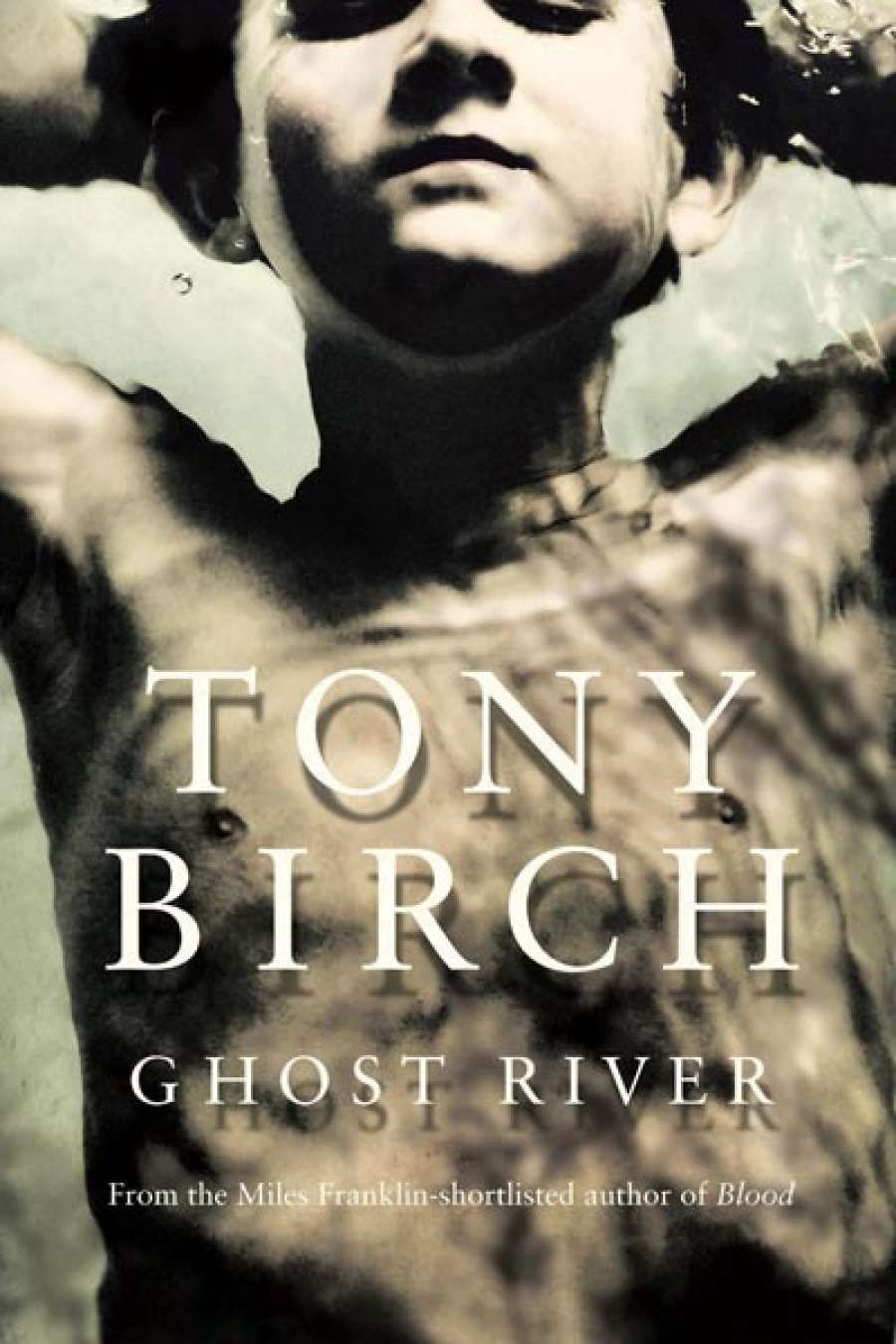
- Free Article: No
- Contents Category: Fiction
- Custom Article Title: Luke Horton reviews 'Ghost River' by Tony Birch
- Review Article: Yes
- Online Only: No
- Book 1 Title: Ghost River
- Book 1 Biblio: University of Queensland Press, $29.95 pb, 304 pp, 9780702253775
Together, Ren and Sonny find a paradise in the river. They spend endless summer days uncovering traces of its more illustrious past and befriending its inhabitants. These early scenes, before events escalate and the narrative pace quickens, are memorable for their rich evocation of the river and the pleasures the boys find in it, unperturbed as they are by the foulness of its water: 'As his skin dried he noticed specks of dirt, fine like baby powder, covering his body. From that day on, the boys carried the river home with them.'
Ren and Sonny meet the 'river men', a group of homeless alcoholics who camp on the river's banks. With their colourful names and antics, Tex, Cold Can, Big Tiny, Tallboy, and the Doc are reminiscent of other memorable fictional drunks, those of Cannery Row especially, and they possess the same charming, if tragic, mix of cunning and hopelessness. Simultaneously infantilised and wise in their alcoholic stupor, they tell stories to the boys about their lives and about the river, some possibly made up on the spot, others no doubt told many times over. One of the most potent of these stories is about the nature of the river itself and the idea that deep below its surface slick lies the original river, as it was before the city and before colonisation. This waterway, the river men tell them, has supernatural powers, among them, and significantly for the plot of the novel, the power to decide the fate of those who fall into its murk.
 Tony Birch
Tony Birch
Like the river men, Birch is a natural storyteller. He knows these people and this world intimately and could no doubt write countless stories about them. Perhaps because of this surfeit of material, there is a sense in Ghost River that no matter how compressed the narrative, or how streamlined the prose, Birch isn't going to be able to fully develop all the narrative threads that he introduces. And he doesn't. In the rush to get the story told and maintain the pace, some threads remain under-developed and some characters sketched rather than finely drawn. The religious cult that moves into the neighbourhood is a case in point. The reverend who heads the cult remains as one-dimensionally evil as he first appears, and his daughter, Della, who holds such allure for young Ren, is not given room to be much more than an object of desire.
There are also moments when Birch seems to lose confidence in his abilities. For a writer with such an instinct for storytelling, and with such an impressive ear for dialogue, he occasionally seems uncertain of their efficacy, and resorts to unnecessary plot summaries: 'Sonny pushed him in the chest, almost knocking him over. "Well, fuck off then and leave me to do this on my own. I'm finished with Vincent." Sonny was out of control on account of the money he'd carefully saved being snatched by Vincent.'
'The landscape of abandonment in Ghost River is one particularly close to his heart: Melbourne's Yarra River'
Birch is good in Ghost River on so many other fronts that these niggles are mitigated by what is ultimately a vivid portrait of his central characters. He avoids romanticising the river men and Ren and Sonny, by keeping the realities of their situation forever in the frame. Nostalgia for his own days on the river may have informed this book, but the freedom his characters find on the banks of the Yarra is fleeting, contingent, and largely illusory. Beyond the localised problems the boys have to deal with, and there are many, including crooked cops, underworld figures, and alcoholic fathers, there is a bigger threat to their future that is ever-present, that of institutional authority. It is there most frighteningly in the guise of the welfare officers who approach Sonny when his uncle becomes seriously ill. For the river men, it is there in the Water Board officials who keep moving them on and in the lonely deaths they will suffer if doctors or hospitals get hold of them. Birch's affectionate portrait of these characters is carefully counterbalanced by this reality.
Birch has written about this world before, perhaps most convincingly in standout short stories such as 'The Toecutters' and 'The Ghost of Hank Williams' from his previous collection The Promise (2014). But in Ghost River we find a welcome and vital addition to his body of work.


Comments powered by CComment